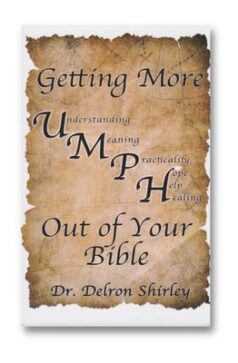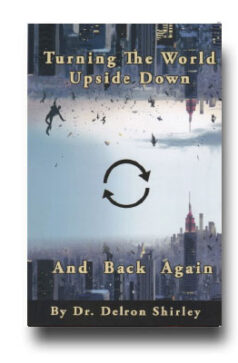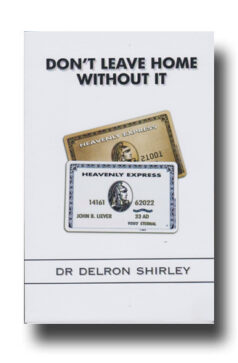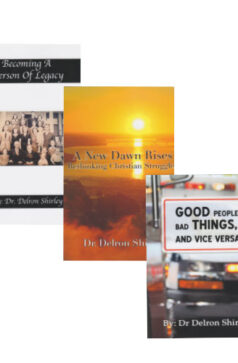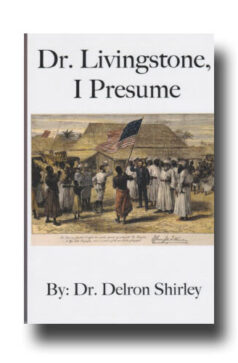Did you ever realize that no one was watching when David slew the lion and the bear, but the whole world watched when he killed Goliath? While the rest of the army of Israel trembled for forty days without even trying to fight, David “stepped up to the plate” and did something no one else could do. David was able to slay the giant in public because he had slain the lion and the bear in secret. His secret victory over the wild beasts was the secret to his victory over the giant!
Even though David knew and demonstrated the power of winning battles in the secret place with God so that his victories could be manifest openly before men, he had one secret moment in which he forfeited this intimacy with God for intimacy with Bathsheba by bringing her into the secret place where he lost the personal battle of integrity. The ultimate result was not only public exposure but also a scourge that was never lifted from his family. (II Samuel 12:10) His public giants wouldn’t fall because he had failed to subdue the private lion of greed and the secret bear of lust.
The Ten Commandments fall into two major categories: offenses against man — which are public — and sins against God — which are private. These two distinct categories evoke two significantly different responses. Public repentance is usually because we are caught in our exposed actions against men; private repentance may actually be because we are sorry that we have sinned against God in the secret place of our hearts. Again, we can turn to the life of David to see implications of these two levels of repentance. David originally tried to avoid public repentance by hiding his wrongdoings against Uriah and Bathsheba. However, when Nathan exposed David’s sin and elaborate cover-up scheme, the king went further than a simple public repentance; he made a private penitence in which he acknowledged that his sin was not simply against the innocent couple but ultimately against God Himself. (Psalm 51:4) Why? Because he knew that he must go back and deal with his private failures against his lions and bears in the secret place (Lamentations 3:10) if he ever hoped to again have public victories against the giants that awaited him.
In Matthew chapter six where Jesus addressed the necessity of developing a strong secret life, He actually showed how the secret place relates to our total personality. He first spoke of our giving — representing our physical personality (the body). He then spoke of fasting, which although it has to do with our bodies is actually a soulical function in that it is literally afflicting the soul. (Isaiah 58:5) Finally, He turned to our spiritual man when He spoke of prayer in that this is our communication with God Himself. In each one of these dimensions, the Lord showed us that there are battles that must be won in private in order for there to be victories manifest in the open. If even non-Christian philosophers can acknowledge that character is who we are behind closed doors, how much more must we as believers realize that our destinies are determined in the secret places. If we want to slay giants in public, we must contend with the lions and bears in our private lives.
The tenth commandment, which spoke to the hidden heart attitude of covetousness, was essentially a sneak preview to the New Testament connection between the secrets of the heart and their public manifestations. (Matthew 5:27-28, II Peter 2:14) Just as lust hidden in the secret place of the heart is as destructive as open physical sin of adultery, so is covert covetousness to the overt sin of stealing. This “stealth attack” of the inner man was apparently the sin that Paul personally struggled with (Acts 20:33, Romans 7:7); yet, he apparently dealt with it and won a victory so that it never hampered his public ministry (Acts 23:1, 24:16; Romans 9:1; I Timothy 1:5, 1:19, 3:9; II Timothy 1:3).
We can also see the power of secret victories when we observe that people with strong private prayer lives get big results with very short prayers. Jesus needed only three words to bring a man back from the dead after four days of internment; yet, He prefaced this short prayer with the acknowledgment that He had laid the foundation in His undisclosed private payer time. (John 11:41-42) Elijah needed only two sentences to call fire down from heaven, but we also know that his personal life was characterized by a lifestyle of intercession. (I Kings 18:36-37, James 5:17)
Joel prophesied that young men would see visions (verse 2:28), a prophecy that was repeated in the first sermon in the newborn church (Acts 2:17). It seems to me that this visionary nature of young men may be linked to their ability to overcome the obstacles and challenges of the enemy. (I John 2:14) In other words, if we want to be victorious, we must visualize ourselves as victorious. Our internal secret revelations bring external public manifestations.
David did just that when he went out to fight Goliath. Notice how he answered the giant when the big bully challenged him, “This day will the LORD deliver thee into mine hand; and I will smite thee, and take thine head from thee; and I will give the carcasses of the host of the Philistines this day unto the fowls of the air, and to the wild beasts of the earth; that all the earth may know that there is a God in Israel.” (I Samuel 17:46) To get the full impact of this statement, we have to consider the fact that David didn’t even have a sword when he declared that he was going to cut off the giant’s head. There was no way he was going to use what he had in his hand — a stick, five smooth stones, and his sling — to take off Goliath’s head; yet he was able to see beyond the natural to the supernatural. Just as he had taken on the lion and the bear without a natural weapon, he could visualize God’s provision even during the struggle. Just as Samson had found that when all he had was a jawbone, it was all he needed; David knew that when the name of the Lord was all he had, it would be all he needed. We, too, must visualize ourselves victorious with God’s supernatural weapons that are mighty through God to the pulling down of strongholds. (II Corinthians 10:3)
One all-important key when taking a challenge bigger than yourself is to refuse to see yourself small in your own eyes. When the spies saw the giants in the Promised Land, they saw themselves like grasshoppers; and the scriptures record, “and so they were.” (Numbers 13:30) On the other hand, David refused to be intimidated by any of the demeaning circumstances in his life — right up to facing a giant that had held the entire army at bay for over a month.
When the prophet came to his house to anoint a new king, David’s own father didn’t even call him for the lineup because he didn’t consider him worthy to even be considered. This Cinderella discrimination and two-ugly-sister favoritism has destroyed many potentially great men and women — but not David because he refused to see himself as the diminutive, ruddy, insignificant, kid brother. When he showed up at the encampment, his oldest brother “let him have it with both barrels,” accusing him of coming out to the battlefield to make trouble. Out of pride and naughtiness in his own heart, Eliab attempted to demean his little brother’s place in the family business by referring to his “few sheep in the wilderness.” Yet, David didn’t even bother to answer these railings; instead, he went directly ahead to the matter at hand — sizing up the giant task he was to challenge. When he was brought to the king’s tent, this little shepherd boy refused to be intimidated by the monarch’s discouraging words, “Thou art not able to go against this Philistine to fight with him: for thou art but a youth, and he a man of war from his youth.” Finally, he met Goliath himself with total confidence that he was big enough for the challenge.
Although we always refer to this story as “David and the Giant,” to get the real meaning out of the story, we need to drop the word “and” from the title. Actually, this is a story about “David, the Giant.” This little narrative shows how this little boy proved to be bigger than any number of obstacles that were thrown in his path. First of all, he was bigger than criticism. The first thing that David encountered when he showed up at the encampment was his oldest brother’s scorn — accosting that would have been enough to discourage most of us. But not so with this giant-hearted shepherd boy! Next, he proved to be bigger than the reward. Although the king had offered a bountiful ransom to anyone who would step forward to fight the Philistine, David seemed totally unmoved by the reward. His question, “Is there not a cause?” showed that he was motivated by the cause, not the cash. Next, we see that he was bigger than the situation. Though his challenge was a giant, he didn’t shrink back; instead, he actually ran to the conflict. As soon as the giant collapsed before the miniature warrior’s slingshot, David proved that he was bigger than himself because the entire army — who had cowered before the giant for forty days — instantly sprang into action and routed the enemy. Lastly, we can conclude that David was bigger than time. Had David not arrived on the scene, the story would have ended with just the forty days that the Israelite army stood hopelessly in the corner, but David stepped into history with a story that is still recounted in every Sunday school class some three millennia later! He became a giant in history because he was a giant in the secret place of his own heart.
David wasn’t intimidated by the shadow cast by the menacing giant; rather, he was standing in the very shadow of the Almighty because he had spent time with Him in the secret place.
He that dwelleth in the secret place of the most High shall abide under the shadow of the Almighty. (Psalm 91:1)
When David was fleeing from King Saul, he had a special hiding place in the Cave of Adullam in En Gedi. It was likely this physical hideout that inspired his words in this passage and also in Psalm 32:7 and Psalm 119:114 in which he referred to God Himself as that place of protection. An interesting flipside to that coin is found in the story of King Saul’s retreat into a cave in En Gedi (possibly even the same cave that always provided safety for David) yet this trip into the cave could have proven fatal to King Saul because it wasn’t the cave itself — but rather the Lord who covered him with His wing while in the cave — that was David’s protection. (I Samuel 24:1-22) The secret place that David described in this psalm is a place where one can relax from his own vigilance because he knows that God is watching over him and protecting him. It is a place of intimacy where one can fellowship with the Almighty and be rejuvenated by that relationship. It is a place similar to the Tent of Meeting where Moses retreated from society so that he could advance with God.
There are three powerful secret places in each of our lives: one is the inner secret place of our heart, another is the secret place of God’s intimate presence, and third is the private physical place of separation that draws the first two together. Paul found that secret place in the desert of Arabia where he went for three years to seek the face of God concerning the perplexing situation he found himself in after his encounter with the risen Christ on the road to Damascus. He had to somehow reconcile himself with this revelation that he had been so certain was contrary to all the Old Testament and Jewish tradition he had always honored. (Galatians 1:18) He returned with an unshakable revelation that propelled him throughout the then-known world and gave birth to the gentile church and a major portion of the New Testament writings. Jesus found His secret place in the desert where He fasted for forty days and then faced Satan head-on in cosmic conflict. (Luke 4:14) He came out of there in the power of the Holy Ghost to minister healing, deliverance, miracles, and salvation. Suzanna Wesley found her secret place every time she pulled her apron over her head to block out the clamber of her house full of children. She came out from there with the inspiration and ability to plant the passion for ministry in the hearts of her sons who would eventually become two of the most important figures in modern church history — Charles and John Wesley. David found his secret place in his bed in the middle of the night.
At midnight I will rise to give thanks unto thee because of thy righteous judgments. (Psalm 119:62)
This verse paints a beautiful picture of the relationship we can have with the Lord. David said that he rose up at midnight, indicating that he cannot sleep because something is so strongly on his mind. Generally, we have sleepless nights because we are anxious or worried about something. However, the Psalmist made it clear that the reason he could not sleep was because he was overwhelmed with thankfulness. I can imagine that he must have awakened in the night with such feelings of gratitude for God’s graciousness toward him that he just couldn’t lie in bed and say a prayer of thanksgiving; he had to get up and take his pen in hand to write a psalm to express his emotion. He defined the reason for his gratitude as the righteous judgments of God. The dictionary definition of the Hebrew word he used is “a formal verdict (favorable or unfavorable) pronounced judicially, especially a sentence or formal decree, including the act, the place, the suit, the crime, and the penalty.” From the context of the verse, it seems that the judgment he is referring to is a favorable pardon for David rather than an unfavorable sentence against his enemy. In that case, the full definition really brings life to the incident. David could recite exactly what he did, where he was when he did it, all the conditions surrounding his offense, and exactly how his action was in violation to the divine law of God; yet, God ruled favorable and pardoned him. No wonder he had to get out of bed in the middle of the night to write a psalm of thanks!
Mine eyes prevent the night watches, that I might meditate in thy word. (Psalm 119:148)
It might seem that David suffered from insomnia. However, I doubt that this was really the case. Notice that he says in this verse that he prevents the night watches, which seems to indicate that he made a deliberate attempt to stay awake. The Hebrew verb can mean to anticipate, and a number of versions translate the passage with that meaning. If we interpret the passage with these two thoughts in mind, we get a picture of David lying in his bed making a deliberate choice between two options: falling asleep or using the quiet hours of the night to contemplate the Word of God. Even if the deliberate aspect of the verse is eliminated since it is only implied, the verse still presents David as lying in his bed making a deliberate choice between tossing and turning in an attempt to fall asleep and using those solitary moments to fill his heart with the truths of God’s Word. Either way, we see an inspiring portrait of the man after God’s own heart. (Acts 13:22) If it worked for David; certainly, it will work for us.
We may find our secret place in our cars as we crank up the worship CD while commuting to work, along the jogging trail as we pray in tongues while doing our morning exercise, at a retreat where we have gone to separate ourselves in fasting and prayer, beside our beds when you kneel in intercession and worship, at the church altar as we bow before the majesty of the Almighty, in our favorite arm chairs as we pore over the pages of God’s precious written Word, or in the sanctuary as we drink in the anointed proclaimed Word of God. Regardless of where it is and how it happens, we must find and sanctify that secret place where we meet and have intimate fellowship with God. It is the key to our success as Christians. It is the thing that we have that the rest of the world doesn’t have that lets us be someone the rest of the world will never be and accomplish things that the rest of the world will never achieve. It is our secret to victory. It is a matter of spiritual — and sometimes physical — life or death!
The seed that produces life is the Word of God. David hid the Word in his heart that he would not sin. (Psalm 119:11) This constant flow of the Word of God renews the believer so that he is able to more readily manifest the nature of his heavenly Father. Keeping the valve open of our spirit man through the entrance of the Word of God brings life. (Psalm 119:130) Of course, there is always the other side of the coin for those who do regard iniquity in their hearts. Jesus summed up their lives in Matthew 15:19, “For out of the heart proceed evil thoughts, murders, adulteries, fornications, thefts, false witness, blasphemies.”
We must diligently guard our secret place because if we protect it God will protect us in His secret place.
For in the time of trouble he shall hide me in his pavilion: in the secret place of his tabernacle shall he hide me; he shall set me upon a rock. (Psalm 27:5)
At this point, I would like to take a look at the concept of the treasures that we store in our secret place because they are the litmus test as to what is valuable in our lives and how we really regard our secret place. In Isaiah 45:3, we see that even God stores His treasures in secret places. In Luke 12:34, Jesus taught us that our treasures and our hearts always wind up in the same place. In other words, whatever has a real priority in our lives will be the thing in which we invest your treasures. Because the two most important commodities in modern society are time and money, it has been said that if we can take a look at a person’s checkbook and his daily planner we can know exactly what is important to that person. If we see that he has written numerous checks to his church and to ministry organizations, we know that his faith has a high priority in life; however, if country club fees and sporting goods stores dominate his expenditures, we know that something else is at the top of his list. If we see that he has blocked out plenty of time in his schedule for regular church activities and volunteer service, we know where his priorities lie; however, if his tee-off times and his business lunches are the most prominent entries on his calendar, we can rethink his commitments.
As we have already seen, the other valuable commodity we store in our secret place is our thoughts. Just as money and time can be employed to help us produce desired results, our thoughts can be inestimable resources of change — sometimes positive and sometimes detrimental. The thoughts that we allow to abide in the secret place of our hearts can be our most valuable assets, or they can become our most formidable foe. David warned us in Psalm 10:8-9 that the enemy waits in the secret place, which verse eleven shows to be the heart, to snare and destroy his prey. It is his desire, as with Ananias and Sapphira, to fill our hearts with vanity, lies, and negative thoughts because he knows the scriptural truth that a man becomes exactly like what he thinks about in his heart. (Proverbs 23:7)
Several years ago, a dear friend of mine was diagnosed as having an advanced case of one of the most aggressive forms of cancer. In fact, when the doctor gave her the report, he advised her to go straight from his office to the airport and catch a plane to a special cancer clinic in Texas. He insisted that there was no time to delay — even to stop by her house and pack a suitcase for the trip. As believers, my friend and her husband determined that they would first have prayer before going for the specialized treatment. Their pastor called all the elders of the church together for a special prayer meeting and laid hands on my friend; however, she could sense doubt behind their prayers “of faith.” She told her husband that she could hear what they were saying with their lips but could also read what they were thinking by looking at their eyes, faces, and body language — and the two did not agree. She told him, “These people are not going to heal me; they are going to kill me! Please get me to a place where people really believe what they say!” When he promised to take her anywhere an airplane could fly, she asked to go to Indiana to be with my wife and me. I arranged for special prayer by two great apostles — our pastor, Dr. Lester Sumrall, and the pastor of the church that was at that time the world’s largest congregation, Dr. Yonggi Cho. She then spent the next three days in our home and received a constant diet of faith-filled words that came with confidence out of our hearts, not just words out of our heads. When she did check in at the cancer clinic, the doctor refused to admit her with the explanation that theirs was a specialized facility and only people with cancer could be treated there! For my friend — and for each of us — the treasure that is stored in the secret place of the heart was the difference between life and death. In Mark 11:23, Jesus emphasized that not doubting in the heart coupled with the positive confession is the key to a successful faith life. Paul also spoke of the power of coupling heart belief and the oral confession in Romans 10:10, while James 1:8 described the futility of having a heart and mouth that were not in agreement and Isaiah 29:13 concluded that such disagreement is abominable to God.
Because David had a revelation of his victory in the secret place of his heart and then spoke it out publicly he was able to set destiny into action. So can we!



